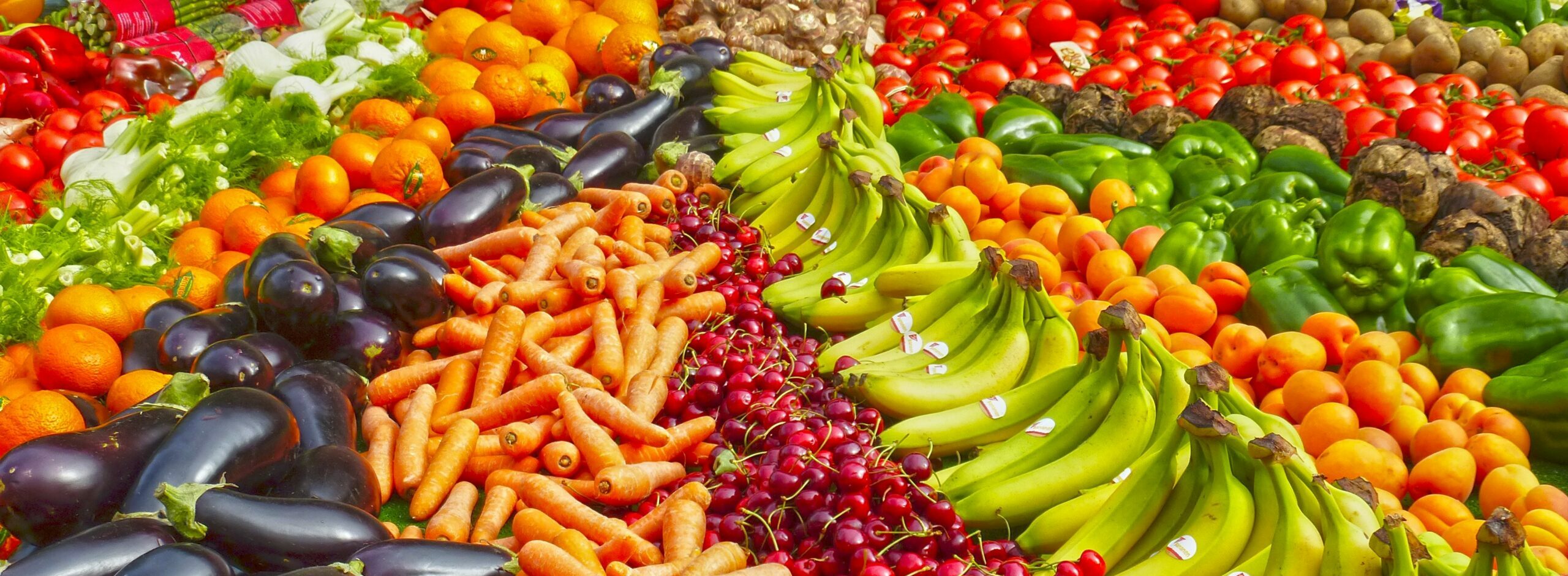The Health and Wellbeing guide explains the link between reproductive health and general health and wellbeing. It covers how everyday habits and behaviours may impact fertility, hormones and menstrual health, and why these things are especially important when planning a pregnancy. This includes looking after your mental health and emotional wellbeing too. As well as supporting life-long health, adopting a healthy lifestyle gives you the best chance of conceiving and having a healthy pregnancy and a healthy baby. We provide evidence-based information on everything from sleep and exercise to hormones and gut health. Reliable scientific information underpins everything we do and helps you optimise your health and wellbeing.
Gut Health
There is growing awareness of the importance of our digestive health for our general health and wellbeing, including mental health, but you are likely to come across a lot of misleading information. You can find out much more detail in our Fertility and Preconception Care course and in The Fertility Book: Your Definitive Guide to Achieving a Healthy Pregnancy. In this section, we provide an over-view of reliable, evidence-based information and look at:
- The gut microbiome
- Gut health and fertility
- What can affect the gut microbiome
- Laying the foundations for your baby’s microbiome
- Improving gut health: dietary diversity and the gut microbiome
- Improving gut health: fibre and the gut microbiome
- Improving gut health: colourful foods and the microbiome
- The microbiome and weight
- How do you know if you have a problem with your gut that might impact your fertility?
- Gut health, coeliac disease and fertility
- Food sensitivities and other triggers
- Take-home message
The gut microbiome
The microbiome is the population of microorganisms that live in your body (including bacteria, viruses and fungi) that support the digestive system and other bodily functions. Different parts of the body have their own microbiome including the gut, vagina, nose and mouth. The gut microbiome affects all aspects of health: immune function, mental health, hormones, weight and metabolism, and fertility. A healthy preconception gut microbiome is also important for pregnancy, childbirth and the future health of a child.

Gut health and fertility
The gut microbiome may impact fertility indirectly because it affects so many bodily processes that can impact reproductive health, as well as more directly via its role in the processing of hormones. In fact, growing research suggests many diseases start in the gut, and evidence is building that the microbiome is one of the most significant modifiable factors that can affect human health. The preconception health of the maternal gut microbiome is particularly important because it “seeds” the microbiome of the baby during childbirth. This lays the foundations for lifelong health and immune function, as the immune system develops in the infant gut based on this early colonisation of bacteria from the mother. How a baby is fed and early environmental exposures add to this founding population of bacteria to build a child’s microbiome, health and immune function as they grow.
You can find about more about the microbiome and the importance of preconception care in our Fertility and Preconception Care course and in The Fertility Book: Your Definitive Guide to Achieving a Healthy Pregnancy.
What can affect the gut microbiome
A healthy, balanced and diverse diet can help promote the health of your gut microbiome (the ‘good’ bacteria essential for health). There are several important factors that have been shown to impact the gut microbiome. The adult microbiome is influenced by factors that are not under our control including age, genetics, and geography. Other factors that we can control and that can impact the microbiome either positively or negatively are listed below.
Positive influences:
- Diverse Mediterranean diet
- High fibre intake
- Polyphenols in colourful foods (see below)
- High plant food intake
- Fermented foods
- Coffee (possibly)
- Having pets (probably)
- Gardening (probably)
Negative influences:
- Antibiotics
- High processed food intake
- High fat diet
- High animal food intake
- High alcohol intake
- Soft drinks (possibly)
- Sugar (possibly)
- Artificial sweeteners (possibly)
- Poor sleep (possibly)
You can find out more about the evidence for these different factors in in our Fertility and Preconception Care course and in The Fertility Book: Your Definitive Guide to Achieving a Healthy Pregnancy.

Laying the foundations for your baby’s microbiome
It used to be thought that the uterus is sterile but research in recent years has challenged this long-held belief. However, there are now contradictory conclusions from recent studies and some current research supports the original position that bacteria are not present in the uterine environment after all. Some of this research suggests that bacteria identified in studies is a result of things like contamination of instruments rather than bacteria from the uterus. This means that infant “seeding” of bacteria into the gut starts with what is usually a vaginal birth. While caesarean births may have been attempted dating back many hundreds of years (though not all historical accounts are thought to be accurate), the procedure was only adopted into clinical practice late in the 19th century when anaesthetics came into mainstream medicine. This means that in the last 150 years, there has been a marked shift in the initial seeding for some babies at birth.
Regardless as to whether any bacteria in the uterus pass from mother to baby, how a baby is delivered is important. A vaginal birth covers the baby with bacteria from the birth canal whereas a caesarean-delivered baby is coated with bacteria from the mother’s skin. Studies comparing vaginally-delivered babies with those delivered by caesarean indicate that the latter have higher rates of conditions including asthma and food allergies. This is thought to be due to the different bacteria that trigger the development of the infant microbiome. The gut microbiome plays a key role in the development of the baby’s immune system, so these findings are not surprising. There are studies looking at a combination of vaginal swabbing with delayed bathing of babies born via caesarean as one potential way to mitigate effects of the mode of delivery but this is not currently clinically indicated. The latest guidance from The Royal College of Obstetricians and Gynaecologists advises that more research is needed before this can be considered for clinical practice.
Factors that can impact a baby’s microbiome include:
- The maternal gut microbiome
- The maternal vaginal microbiome
- Early environmental exposures
- Early life stress
- Mode of feeding: breast or bottle
- Mode of birth: vaginal or caesarean
Improving gut health: dietary diversity and the gut microbiome
Dietary diversity is one of the most powerful factors under your control that can improve your well-being. Studies show that a diverse diet means that the population of bacteria in our gut (microbiome) is also diverse, which results in better health outcomes across a range of indicators. Given that optimal immune function and inflammatory status are important for things like implantation, we can start to see how the indirect effects of diet may impact on reproductive pathways and explain the association between good diet and better fertility outcomes.
Dietary diversity across all food groups and types is helpful but is especially important in terms of vegetable intake. This is because vegetables are prebiotics. Prebiotics are foods that stimulate the growth of beneficial bacteria in the gut, rather than having to add them in the form of a probiotic, which is a food or supplement that already contains the bacteria. Vegetables are prebiotics as they contain the non-digestible fibre that reaches the gastrointestinal tract intact and effectively provides a source of food for the bacteria, allowing them to grow. The more variety of vegetables you eat, the better your gut microbiome (the ‘good’ bacteria in your gut). Current recommendations suggest we should aim to eat at least 30 different types of vegetable per week to maximise our chances of creating a diverse microbiome.
Improving gut health: fibre and the gut microbiome
The recommended daily intake for fibre is 30g, and most people do not come close to this. High-fibre diets are associated with better outcomes in terms of fertility, and fibre is important for many aspects of health, including digestive and cardiovascular health. The best dietary sources of fibre are vegetables, beans, pulses and wholegrains such as brown rice. Good fibre intake is associated with healthier microbiome profiles.
Improving gut health: colourful foods and the microbiome
Different colours in foods indicate differing antioxidant compounds, which all have specific properties and health benefits. Anthocyanin in blueberries, for instance, has been shown to have various benefits for general health and studies indicate improvements to cardiovascular health, memory, energy and blood pressure with regular blueberry consumption. Studies indicate that polyphenols are beneficial for our gut bacteria, so good dietary antioxidant intake is important for many different reasons.
You can find out more about simple but important dietary principles to help optimise general health and fertility in our Fertility and Preconception Care course and in The Fertility Book: Your Definitive Guide to Achieving a Healthy Pregnancy.

The microbiome and weight
The gut microbiome (the ‘good’ bacteria in your body that are essential for health) may impact fertility indirectly in many ways. This includes an impact on weight and metabolism. Certain species of bacteria are associated with lean bodies and others with overweight ones. There is ongoing research looking at the microbiome to help with weight management with some probiotic supplements showing promise, but it is an incredibly complex area. In the meantime, it’s important to know that what you eat affects the bacteria in the gut. You can find out more about the dietary principles that may help, including eating probiotic foods, in our Fertility and Preconception Care course and in The Fertility Book: Your Definitive Guide to Achieving a Healthy Pregnancy. Significant recent research has shown that it is the proportion of carbohydrate, fat and protein that is particularly important in terms of your individual microbiome’s response to food. This means that finding a balance of macronutrients that is suited to you is probably more important than following trends for eliminating particular foods. The best advice we can give while this research is underway is to pay attention to your body: people often report that they gain weight if they overdo the carbohydrates, or feel worse after sugar, or have more energy with more protein or feel better on less fat, for instance.
Research also suggests that the bacteria in your gut can affect food choices via the gut–brain axis (the vagus nerve links the gut and brain). While we do not have clear evidence of how we can harness this type of response to our benefit, it is plausible that the more you move towards healthier food choices, the better the make-up of your microbiome will be, and the less you will crave sugary, fatty foods.
How do you know if you have a problem with your gut that might impact your fertility?
In order to work out if you have a problem with your gut health, it’s useful to understand what is normal. Generally, a healthy gut will produce normal bowel movements one to three times per day most days of the week. This means stools that are neither too loose nor too hard. Signs of an unhappy gut include bloating, excessive gas, cramping, constipation, diarrhoea, sensitivities to particular foods or bowel movements fewer than three times per week and more than three times per day. Very foul-smelling stools can be a sign of nutrient malabsorption. If you regularly go more than two days without a bowel movement, have difficulty passing stools, or if you can’t hold on once you get the urge to go, these can all indicate problems. Mucous in faeces can indicate problems including infection or Crohn’s disease and blood in faeces can be a sign of inflammatory bowel disease (IBD) or bowel cancer. Very pale or very dark faeces can also signal problems.
A history of antibiotic use for any previous infection, food poisoning, excess alcohol and junk food diets can all have negative effects on the microbiota, so pay attention to your history as well as your current symptoms.
Conditions such as irritable bowel syndrome (IBS), coeliac disease, Crohn’s disease and ulcerative colitis can impact digestion, and these conditions all require medical testing and intervention. If you are diagnosed with IBS, there are certain types of foods that are known to worsen symptoms, and your doctor or dietician may recommend eliminating FODMAPs (fermentable oligosaccharides, disaccharides, monosaccharides and polyols). FODMAPs are poorly absorbed carbohydrates that can trigger symptoms in some and include fructans contained in wheat, rye, onions, garlic and beans, lactose in dairy, fructose in fruit (which when eaten in excess can cause problems) and polyols in certain fruit and vegetables and some artificial sweeteners.
We cover these issues in more detail in our Fertility and Preconception Care course and in The Fertility Book: Your Definitive Guide to Achieving a Healthy Pregnancy.
Gut health, coeliac disease and fertility
One condition that is known to reduce the chances of conceiving and increase the chance of miscarriage is coeliac disease, which causes significant problems when left undiagnosed. Coeliac disease is an autoimmune disease (not a food allergy) triggered by eating the gluten contained in wheat, barley and rye and it is very commonly misdiagnosed as IBS. Around 50 per cent of people who go on to be diagnosed with coeliac disease do not experience digestive symptoms or a noticeable reaction to wheat.
Coeliac disease may be more common among people experiencing fertility problems and, if you have not been able to conceive and especially if you have suffered miscarriage, you should ask to be tested. The first stage of testing is a simple blood test and you need to be eating wheat every day for a period of six weeks to ensure you do not get a false negative. Other symptoms of coeliac disease include fatigue, nutrient malabsorption including anaemia, hair loss, anxiety, poor mental focus and tooth enamel defects including discolouration.
A combination of inflammation, a triggered immune system and nutrient deficiencies are thought to cause the fertility-related complications that come with coeliac disease. If you have coeliac disease and follow a strictly gluten-free diet, however, your risk falls to almost the same level as those who do not have the disease. Having a diagnosis is extremely important as treatment requires strict and lifelong dietary changes, including the need to avoid cross-contamination of foods, and it is of an entirely different order to a gluten-free lifestyle choice that some choose to make.
Food sensitivities and other triggers
If you have ruled out a medical condition but still have symptoms without a known cause, including abdominal discomfort, bloating, constipation and diarrhoea, there are other aspects to consider. Each symptom such as bloating could have multiple potential causes, so it is important to go through a process under professional supervision to work out what the problem may be. As well as specific conditions, some people find that stress, exercise or specific foods trigger digestive symptoms. In addition to consulting your GP, it’s helpful to identify for yourself any particular patterns of symptoms. There is a specific process to follow that involves recording all food and drink you consume (including sauces, supplements and snacks) as well as exercise, stress, sleep and general circumstances, along with symptoms over a period of several weeks. If you notice patterns to your symptoms or reactions to specific foods, you can restrict individual foods you identify one by one for a time to see if you notice improvements, and then reintroduce the food to confirm it does indeed cause you a problem.
Remember, you may come across lots of misleading information so always ensure your information sources are reliable. The claim that dairy is inflammatory for all isn’t backed by evidence, for instance, though some people feel better by cutting out diary. While most people are absolutely fine with moderate consumption, some people are lactose intolerant, for instance, where they don’t produce lactase, the enzyme that digests lactose, the main sugar in dairy produce. This can be tested by your doctor.
If you experience any diarrhoea, discomfort, sensitivity or bloating in your abdomen after eating things like bread, pasta, cakes and biscuits, and you have ruled out coeliac disease after getting tested, you may suffer from non-coeliac gluten sensitivity (NCGS). Non-coeliac gluten sensitivity (NCGS) is controversial amongst some but thought to be an immune-mediated reaction to gluten or other constituents of wheat in patients who do not suffer from coeliac disease, with symptoms improving once gluten and/or wheat is removed from the diet. It is important to see your doctor to be assessed if you’re experiencing symptoms.
For those without a specific health condition, there isn’t robust evidence to advise cutting out all gluten. In fact, gluten-free processed foods, can be less nutrient-dense, including lower levels of calcium, iron, magnesium, zinc, vitamin B12, folate, and vitamin D, as well as significantly less fibre than their gluten-containing counterparts. Food manufacturing processes often mean that processed foods that are gluten-free tend to be higher in hydrogenated and saturated fatty acids (more unhealthy forms of fat), as well as having a higher glycaemic index. So you must always take great care when eliminating foods from your diet, and ensure that you do so under professional guidance.
You can find out more about healthy, sensible approaches to diet, weight management, preconception care and assessing any symptoms you can be experiencing in our Fertility and Preconception Care course and in The Fertility Book: Your Definitive Guide to Achieving a Healthy Pregnancy.

Take-home message
The evolving science in terms of food, gut health and the gut microbiome is complex and there is a lot we don’t know. However, there are factors that can we can be fairly confident help promote a healthy microbiome, including dietary diversity and a high vegetable intake. Many claims about gut health are not backed by evidence and you can find out more about the latest research in our Fertility and Preconception Care course and in The Fertility Book: Your Definitive Guide to Achieving a Healthy Pregnancy. The simple strategies we outline here should have a positive impact and are things are good for general, mental and reproductive health. Remember, if you are trying to conceive, you should seek specific advice for fertility and pregnancy and always ensure your diet is meeting your nutritional needs.
References
- Adam Balen and Grace Dugdale. The Fertility Book: Your Definitive Guide to Achieving a Healthy Pregnancy. Penguin Random House (Vermilion) 2021
- Manor, O., Dai, C. L., Kornilov, S. A., Smith, B., Price, N. D., Lovejoy, J. C., Gibbons, S. M., & Magis, A. T. (2020). Health and disease markers correlate with gut microbiome composition across thousands of people. Nature Communications, 11(1), 1–12.
- Heiman, M. L., & Greenway, F. L. (2016). A healthy gastrointestinal microbiome is dependent on dietary diversity. Molecular Metabolism, 5(5), 317–20.
- McDonald, D., Hyde, E., Debelius, J. W., Morton, J. T., Gonzalez, A., Ackermann, G., Aksenov, A. A., Behsaz, B., Brennan, C., Chen, Y., DeRight Goldasich, L., & Knight R. (2018). American Gut: An open platform for citizen science microbiome research. Systems, 3(3), e00031–18.
- Curtis, P. J., van der Velpen, V., Berends, L., Jennings, A., Feelisch, M., Umpleby, A. M., Evans, M., Fernandez, B. O., Meiss, M. S., Minnion, M., & Potter, J. (2019). Blueberries improve biomarkers of cardiometabolic function in participants with metabolic syndrome – results from a 6-month, double-blind, randomized controlled trial. The American Journal of Clinical Nutrition, 109(6), 1535–45.
- Grembi, J. A., Nguyen, L. H., Haggerty, T. D., Gardner, C. D., Holmes, S. P., & Parsonnet, J. (2020). Gut microbiota plasticity is correlated with sustained weight loss on a low-carb or low-fat dietary intervention. Scientific Reports, 10(1), 1–14;
- Aoun, A., Darwish, F., & Hamod, N. (2020). The influence of the gut microbiome on obesity in adults and the role of probiotics, prebiotics, and synbiotics for weight loss. Preventive Nutrition and Food Science, 25(2), 113.
- Berry, S. E., Valdes, A. M., Drew, D. A., Asnicar, F., Mazidi, M., Wolf, J., Capdevila, J., Hadjigeorgiou, G., Davies, R., Al Khatib, H., & Bonnett, C. (2020). Human postprandial responses to food and potential for precision nutrition. Nature Medicine, 26(6), 964–73.
- Alcock, J., Maley, C. C., & Aktipis, C. A. (2014). Is eating behavior manipulated by the gastrointestinal microbiota? Evolutionary pressures and potential mechanisms. Bioessays, 36(10), 940–9.
Copyright © 2025 Balance Fertility